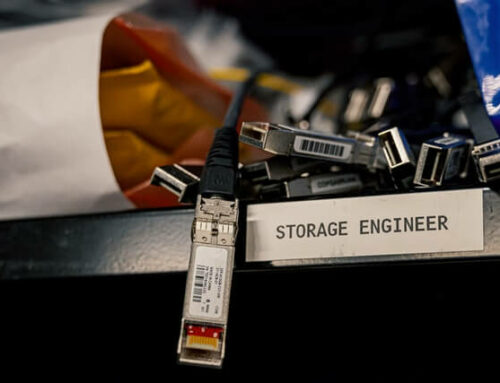Preparing Your 2022 Data Center Budget: Making the Case to the CFO
The annual budgeting season is now on us, and for the Chief Finance Officer (CFO), this means hours of pondering over which units get the cuts and which ones merit a little more funding. In many enterprises, IT spending continues to rise with the rapid digital transformation and the increasing demand for new technologies.
As such, IT budgets are often stretched thin, and putting up a data center proposal would likely upend the previous years’ tech budgets. It’s therefore important to thoroughly evaluate all your options before you start presenting your case to ensure that you get your finance executives on board
Having Your Own Data Center
Companies who opt for a data center that they operate themselves do so for these main benefits: total control over the facility and its physical security (and the peace of mind that comes with this), and flexibility in that you can upgrade both hardware and structure as soon as the need arises. Now even when you’ve decided that you should have your own private data center, you still have to choose: build, lease wholesale, or use colocation services?
Building your own data center makes the most sense for larger enterprises that can produce substantial funds upfront for capital expenditures (CapEx). It would also be the ideal choice for organizations that have a lot of data that are just too sensitive to be stored in a data center managed by others. CapEx funding would go to acquiring or constructing a building for the center, as well as for the costs of IT hardware.
On the other hand, companies who don’t have the means to obtain such significant financial resources would find that data center rental/leasing, or a colocation service would be a better fit. Wholesale rental of a data center building would give you a larger space and hence, more capacity—if that’s what you need. Those who require a smaller area could opt to use a colocation service where the data center space is shared among other businesses.
In both rental and colocation, the CapEx required would be needed mainly for the purchase of servers, storage units, and other equipment. All other ongoing costs such as the rental fee, facility staffing, network connectivity, power, cooling, and other similar costs would go under operating expenses (OpEx). Keep in mind though that a lease or colocation arrangement could be more expensive over the long term because of the OpEx items that would typically increase on a regular basis (e.g. rental fees, shared services in a colocation).
Using a Cloud Data Center or a Hybrid Option
The cloud technology continues to present itself as a viable alternative in the storage space. This is especially true in cases where maintaining an on-premise or off-site data center would prove to be a strain on the financial resources of the organization. Storing data on cloud servers offers a recourse that is not only cost-effective for many businesses but also provides security (if you go with established services providers) and regulatory compliance assistance, which smaller companies would find hard to achieve on their own.
But even taking into consideration the ideal pricing and flexibility of cloud data centers, many enterprises still find putting it all on the cloud too risky—and perhaps rightly so. After all, every organization has its own set of data and applications that they would prefer to keep within their control for security purposes. In this case, a hybrid solution combining cloud and physical data centers would address most concerns with either solution.
A cloud data center brings with its scalability, speed, and affordability as its strengths, while a company-maintained data center would provide companies the familiarity, security, and control they need over their most important data.
The Data Center for Your Needs and Resources
No doubt, there is a wide range of data center approaches that can provide the needs of most organizations. There is no one-size-fits-all solution, however, so it’s crucial to evaluate each option and see how it aligns with your needs and your company’s financial approach to IT investments.
Once you’ve identified the right setup and infrastructure, find reliable service providers—whether it’s for cloud storage services, IT managed services, security services, or technology vendors—and get your enterprise the best value for money.
ADAPTURE is a forward-thinking IT solutions provider, focusing on comprehensive infrastructure services, strategic cloud innovation, and excellence in proactive IT security. We are here to guide you in the development of your organization’s technology goals and the deployment of industry-leading solutions that will help you reach them.












